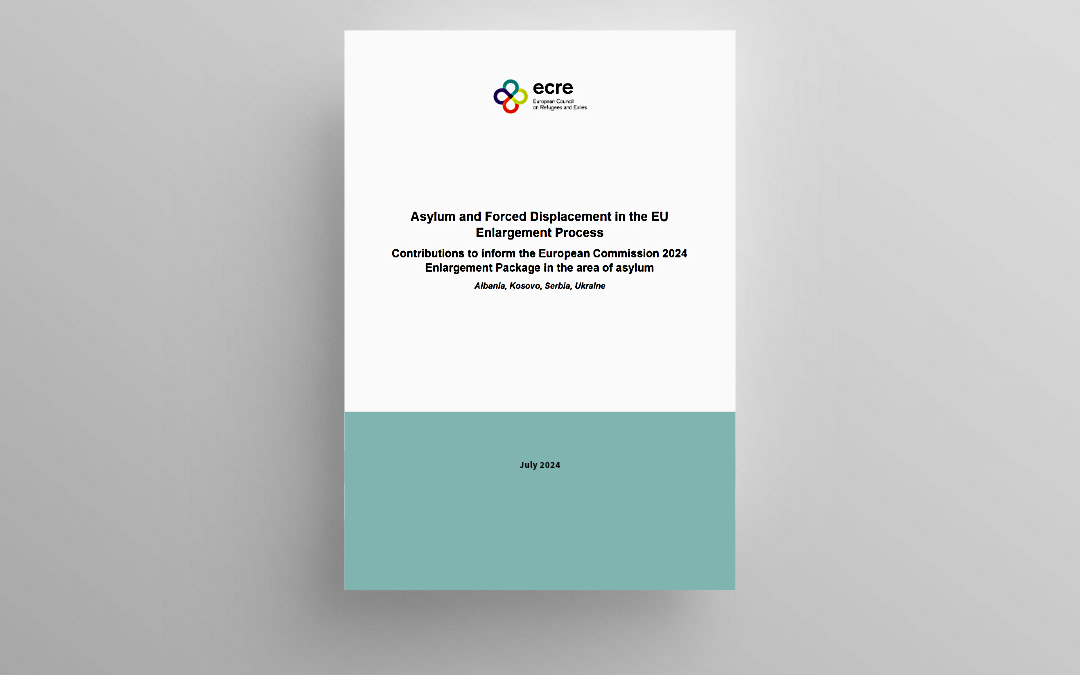ECRE has published the assessment by a number of civil society experts of certain questions related to asylum and forced displacement in the EU enlargement process. These expert contributions are intended to inform the country reports on Albania, Kosovo, Serbia and Ukraine in the framework of the 2024 Enlargement Package.
In order to provide an assessment of the state of play and progress made by the candidate countries regarding their integration into the EU, the European Commission (EC) adopts an annual ‘enlargement package’, which includes reports on each country’s implementation of required reforms and provides guidance on the respective priorities. In November 2023, the EC published the 2023 Enlargement Package, which provided an assessment of the accession progress of the six Western Balkans countries plus Georgia, Moldova, Türkiye and Ukraine.
The contributions in this report are aimed at filling the gap in the area of the provision of information by civil society organisations about the situation on asylum and forced displacement in relation to the process of EU integration in candidate countries. Expert contributions provide analysis of both asylum in the fundamental pillars of the accession process, as well as a more detailed overview of the specific challenges in certain chapters of the EU acquis, specifically the areas of judiciary, fundamental rights, justice, freedom and security.
Part I of the country contributions covers the fundamental pillars of the accession process – the alignment with the Copenhagen criteria, which include political and economic criteria, as well as the ability to take on and implement effectively the obligations of EU membership. The contributions cover inter alia such questions as the level of civil society participation in asylum- and migration-related policy-making, the state’s policies on naturalisation, the situation pertaining to the right to work and access to education for asylum applicants and protection holders, the independence and capacity of administrative bodies responsible for examining applications for international protection, the functioning of oversight/monitoring bodies to safeguard the quality of the related decision-making processes, and the capacity of national monitoring bodies to oversee the use of EU financial assistance for integration.
Part II is focused on the state of play regarding the countries’ alignment with the EU legislation related to certain aspects of asylum and migration. It covers the questions related to the three relevant chapters of the EU acquis (i.e. Chapter 23 (Judiciary and fundamental rights), Chapter 24 (Justice, freedom and security) and Chapter 18 (Statistics)). The analysis of the situation in these three areas includes questions related to the independence of the judiciary and access to judicial remedy for asylum seekers and other migrants, the management of return processes, the implementation of the judgments of the European Court of Human Rights, certain aspects related to access to the asylum procedure and the rights of applicants for protection, the use of safe country concepts, and the mechanisms for collecting, sharing and analysing statistics on migration.
The contributions also offer recommendations for improving the standards and practices related to the management of asylum systems and wider migration policies of each of the four countries covered.

